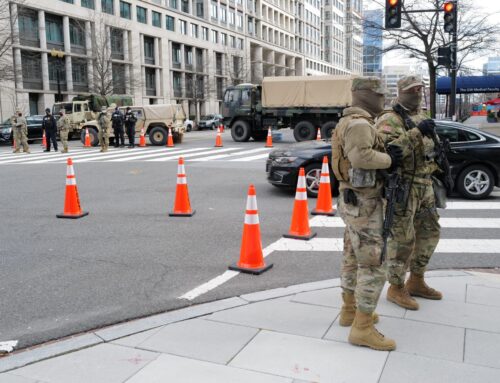It’s spring, so lawmakers on the House Armed Services Committee (HASC) are moving forward with the annual defense policy bill – the National Defense Authorization Act (NDAA).
Don’t be distracted by the proposed spending levels, the real cash will come in the defense appropriations bill later this year (we hope). But this bill does contain various directions for the Pentagon. Some significant, but some much more parochial, like requirements for various high-ranking Pentagon officials to provide briefings on various issues the committee has “concerns” about.
- The Secretary of the Army is directed to prepare a briefing on “a plan to conduct comparative analysis of factors affecting Patriot reset timeliness and appropriate actions to improve timeliness.”
- The Secretary of the Army must also brief HASC on maintaining a “full complement” of interceptors for the Patriot system.
- And the Secretary of the Army is further required to prepare a briefing on a “strategy to mitigate the decline of the Stinger missile inventory”.
- The Director of the Missile Defense Agency to brief HASC on several things including how MDA “will ensure the contractor’s systems engineering and ground testing procedures are adequate to support production of SM-3 IB and SM-3 IIA interceptors.”
Asking the Army to brief the committee on these narrowly defined issues is one way of putting the thumb on the scale to get a desired response. “Timeliness” considerations for resetting the Patriot program, or plans to maintain a “full complement” of the missiles seem specifically designed to push the Army into a position that will benefit the maker of the Patriot. See, also, a requirement for a strategy to “mitigate the decline” of how many Stingers are in the inventory. This seems to pre-determine that the only correct answer is to continue purchasing more Stingers. Interestingly, the corporation involved in producing these missile systems is Raytheon. And the division of Raytheon that works on missile programs is in the Congressional District of Rep. McSally (R-AZ), a member of the House Armed Services Committee.
Other briefings the Committee requires, also from the Secretary of the Army:
- Issues related to M240 medium machine guns. The committee cites “too much risk in the small arms industrial base with respect to the family of M240 medium machine guns” and that “no funding is projected for new production in fiscal year 2020 or fiscal year 2021.” The producer of M240s appears to be Fabrique National in the district of Rep. Joe Wilson (R-SC), a member of the committee.
- On the “advisability and feasibility of rapidly accelerating the testing, evaluation, and procurement of a self-propelled 105mm howitzer”. The likely beneficiary of any rapid acceleration of this program appears to be A.M. General, a major government contractor in Indiana. Rep. Jim Banks (R-IN), a member of the committee, represents a neighboring Congressional District.
The Secretary of the Army and his staff better tune up their PowerPoint skills; they’ve got a lot of briefing to do!
In other areas, the Committee cuts directly to the chase and requires the Pentagon to either do, or not do, certain things. You might think the Congress would let the Pentagon decide what commands or major weapon systems it needs or doesn’t need. But you’d be wrong.
- The Air Force is directed to establish a new “numbered Air Force” for space warfighting operations as well as a new subordinate unified command under Strategic Command for joint space warfighting operations. A so-called numbered Air Force is a major subset of the service, which currently has just sixteen of them. Setting up a new one is a major undertaking that would eventually involve thousands of airmen.
- The Air Force is told it can’t reduce the number of Inter-continental ballistic missiles to fewer than 400. This is all about both maintaining all three legs of the nuclear triad and also negating any possibility that the remote bases where these missiles are stationed could ever be closed.
And it wouldn’t be the House of Representatives if the bill didn’t beat the drum for more and more defense items to be made in the United States. The “Buy American” cry may sound patriotic, but our service men and women deserve the best product, no matter where it’s made. And requiring something to come from an American source, if the only domestic producer just happens to be in your Congressional district, is just a form of back-door earmarking. On this issue the HASC language would:
- Require changes to federal contracting statutes to ensure certain auxiliary ship components must come from a “manufacturer in the national technology and industrial base.” (Read: made in the U.S.)
- Require U.S. Navy ships that do not have a homeport to be treated as though they are homeported in the U.S. or Guam for purposes of overhaul and/or repairs. This amends a portion of the federal code currently requiring that all ships homeported in the U.S. must be overhauled and/or repaired in a shipyard located in the U.S. or Guam, thus ensuring more work for U.S. shipyards.
There are other spurious requirements and prohibitions in the draft committee language, but you get the picture. We’ll keep reading and reporting on how the House of Representatives proceeds on this massive legislation.










